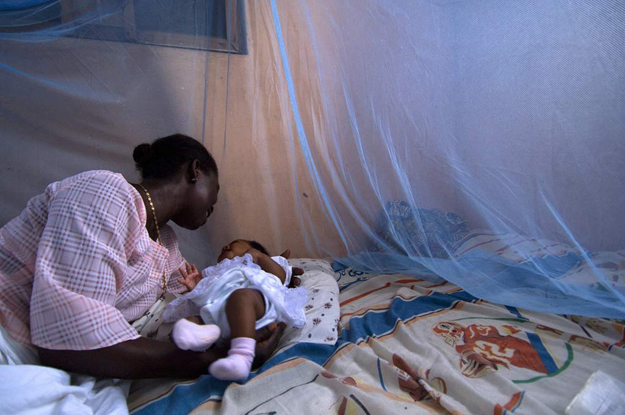
Twenty-one countries are on track to fully eliminate malaria within the next five years, the World Health Organization (WHO) has announced.
The agency says this is an example of the "great progress" the world is making in fighting the life-threatening disease which is spread by infected mosquitoes.
'End malaria for good' is the theme for this year's World Malaria Day, observed on Monday, 25 April.
Dianne Penn reports.
The World Health Organization (WHO) estimates that about 3.2 billion people, or nearly half the global population, are at risk of malaria.
WHO laid out its strategy for a malaria-free world in a framework document published last year.
Goals include reducing cases and deaths by at least 90 per cent over the next 15 years as well as eliminating the disease in at least 35 countries.
However, new analysis shows that 21 countries are "on sound ground" to achieve malaria elimination by 2020.
Dr Pedro Alonso, Director of WHO's Global Malaria Programme, says several African countries are among them.
"Progress is being made in Africa in a very significant way, and we do expect a number of countries in the African region to achieve the malaria-free status, achieve full elimination, full interruption of transmission, within the next five years and this includes Algeria which is nearly there, Botswana, Cape Verde, Comoros, South Africa and Swaziland."
The UN health agency reports there has been a "major decline" in global malaria cases and deaths since 2000.
But to achieve the targets in its strategy, annual investment in malaria control would have to reach US$8.7 billion a year by 2030.
Dianne Penn, United Nations.
Duration: 1’26:









